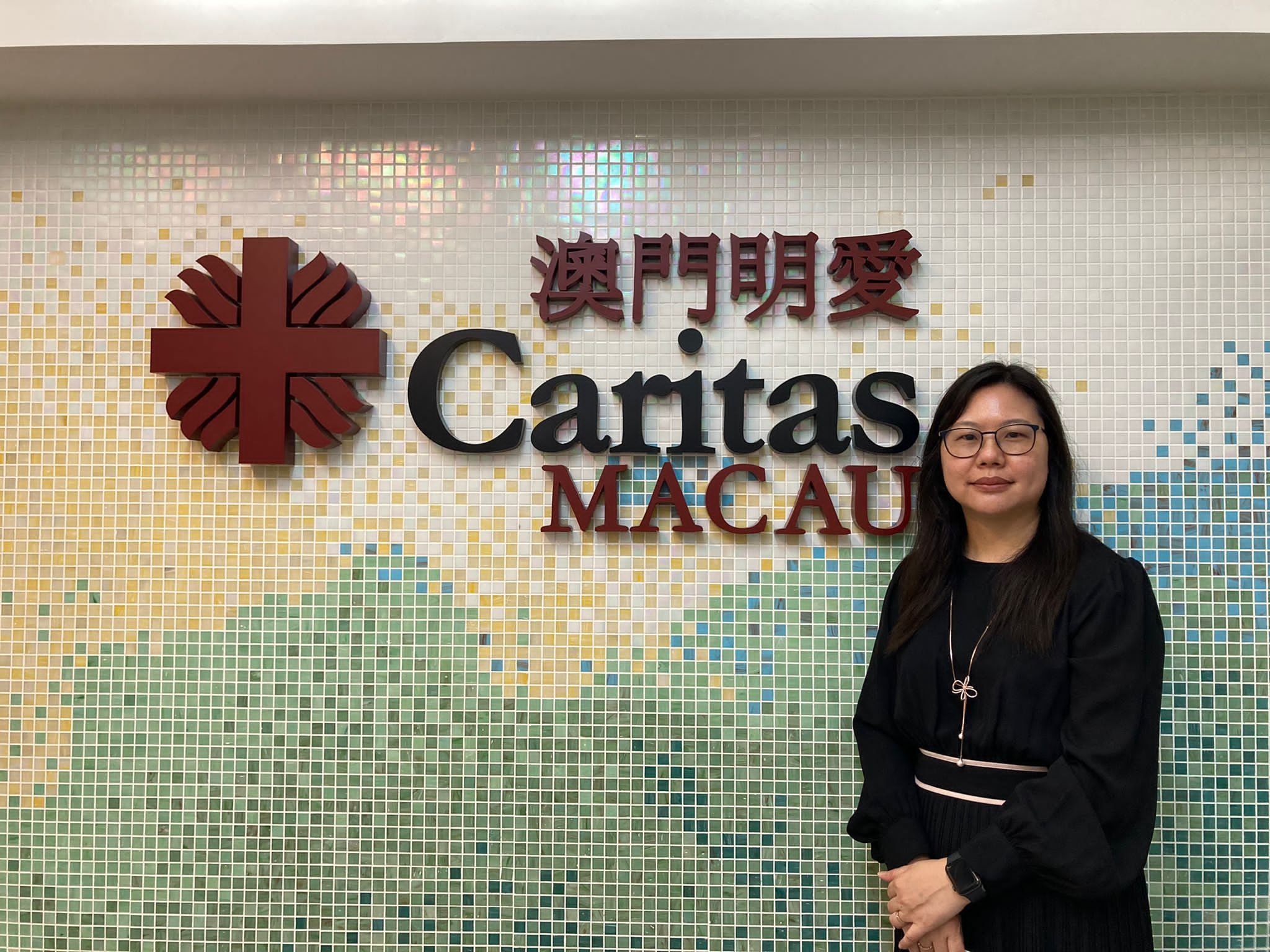
(Caritas MACAU is a Macao social service organization with the purpose of providing social welfare services.)
Julia Lam is an experienced social worker with two children. She has been engaged in social work for nearly 30 years since 1995. She originally planned to become a teacher, but due to economic reasons and family expectations, she entered the field of social work by accident. She is passionate about humanistic care work, and gradually discovered her strong interest in this profession through participating in public welfare activities and volunteer work.
Under the opportunity of the system reform of Caritas, Julia Lam was able to enter the higher education program of social work and complete her studies part-time. She knows well the professionalism and responsibility of social work and emphasizes that social workers’ efforts are not just obligations.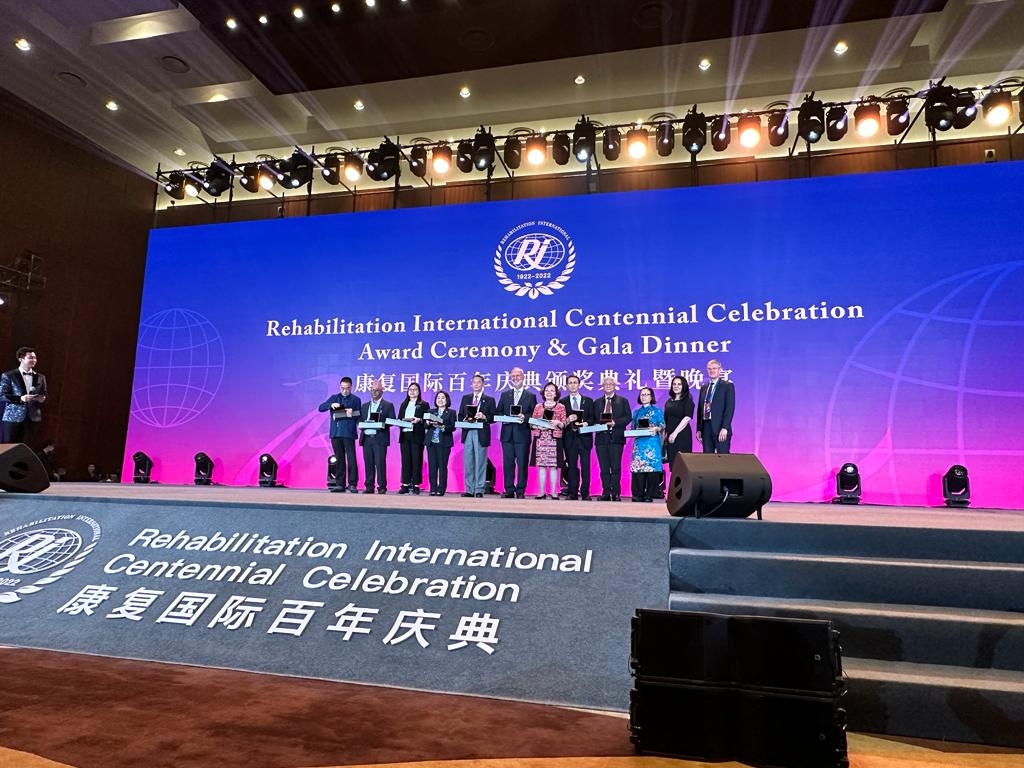
(In 2023, attend the centenary celebration of Rehabilitation International in Beijing, and receive the “Outstanding Contribution Award for the Century of Rehabilitation International” on behalf of Caritas Macau.)
With the government’s emphasis on social work after the return of Macau to Chinese administration in 1999, she successfully entered the organization after graduation. She started as a deputy director and accumulated rich management experience. She is not satisfied with the status quo and hopes to explore new fields and enjoy the process of starting from scratch.
However, due to physical conditions, Julia had to retire last July. Before her retirement, she was the Deputy Director of Service of Caritas Macau, responsible for 14 rehabilitation, family and community service projects, and participated in special research.
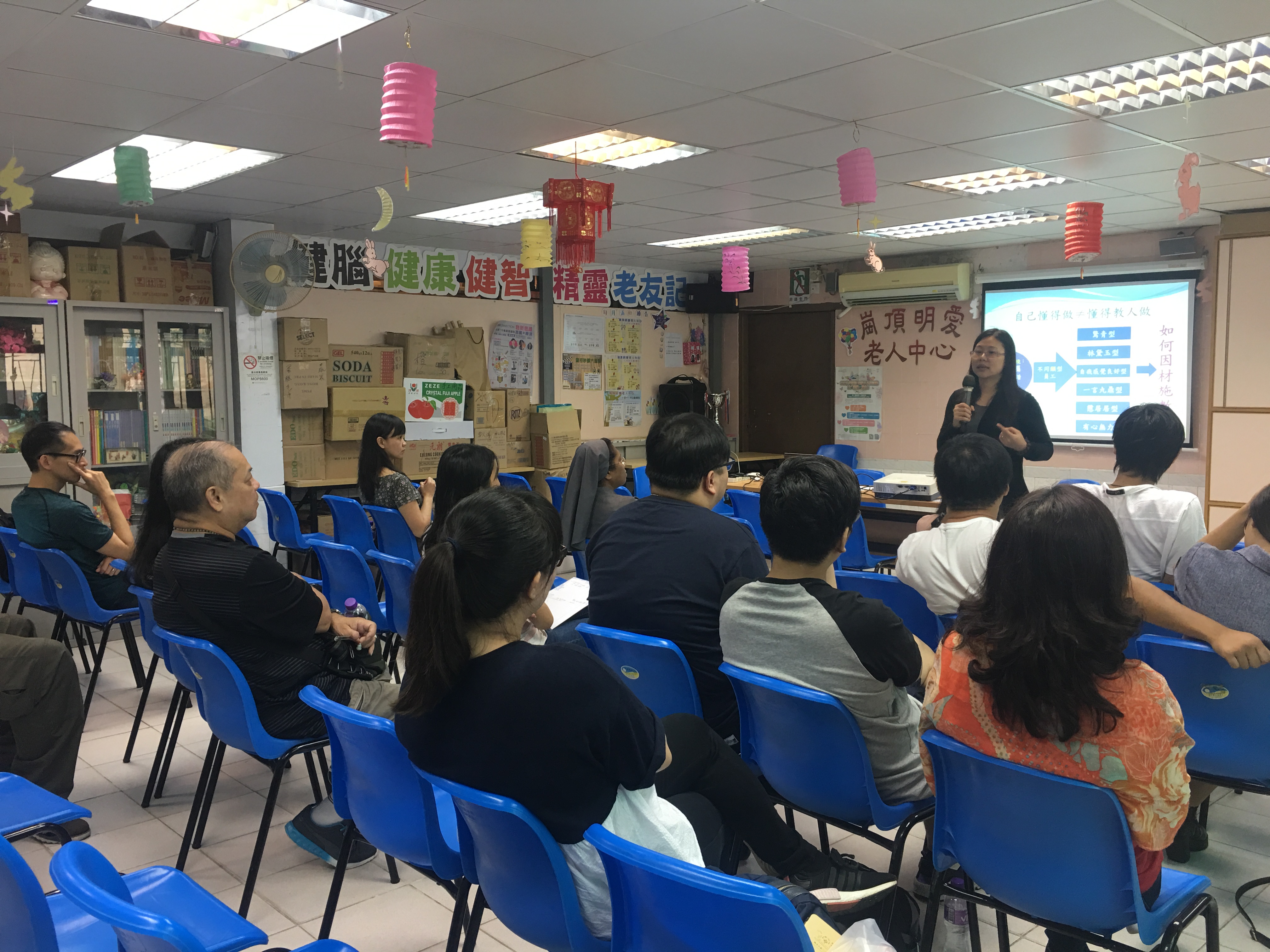
(Conduct staff training for unit supervisors in Caritas Macau)
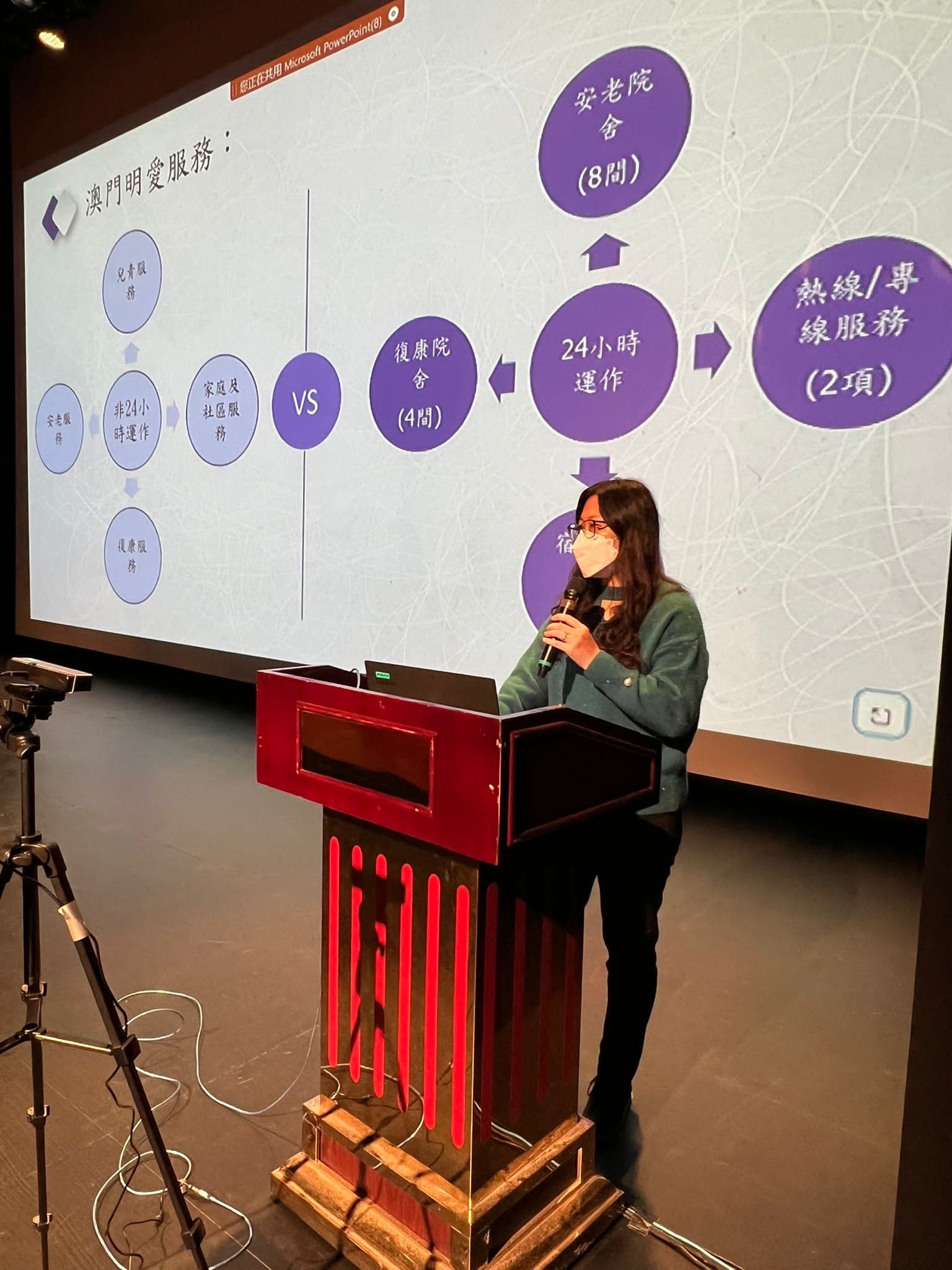
(Participate in seminars held by universities and share their expertise.)
“It’s weird to say, but I used to think I’d never get a shot at being a teacher. But later on, I realized that it takes more than just book smarts; practical experience is crucial too. So, many schools would invite us to come teach and share our know-how,” Julia Lam explained.
In the process of training, she oftens shares a case with students explaining the importance of listening to others and acknowledge the roots of behaviors and bursts of personal emotions“I was the director of Minghui Nursing Home in Black Sands for eight years”, she starts “One year, a new patient’s family came to the nursing home and made a big fuss.Other nurses couldn’t cope and ran to me for help, So I went to find out why this patient’s family member wanted to make trouble.” Julia mentions this emphasizing how rare this approach is to happen on the first day. “I invited her to the office and waited for her to vent before I knew the reason. It turned out that the family member’s husband had been hospitalized for stroke several times.” Before this humanized approach, she notes, “he was always ignored by the hospital”, Julia states, once when the family member made a big fuss did the hospital start to pay attention to him”, so by arguing with doctors and nurses he could they attract attention.
The social worker believes that everything happens for a reason, and understanding the reason takes a lot of patience and understanding.
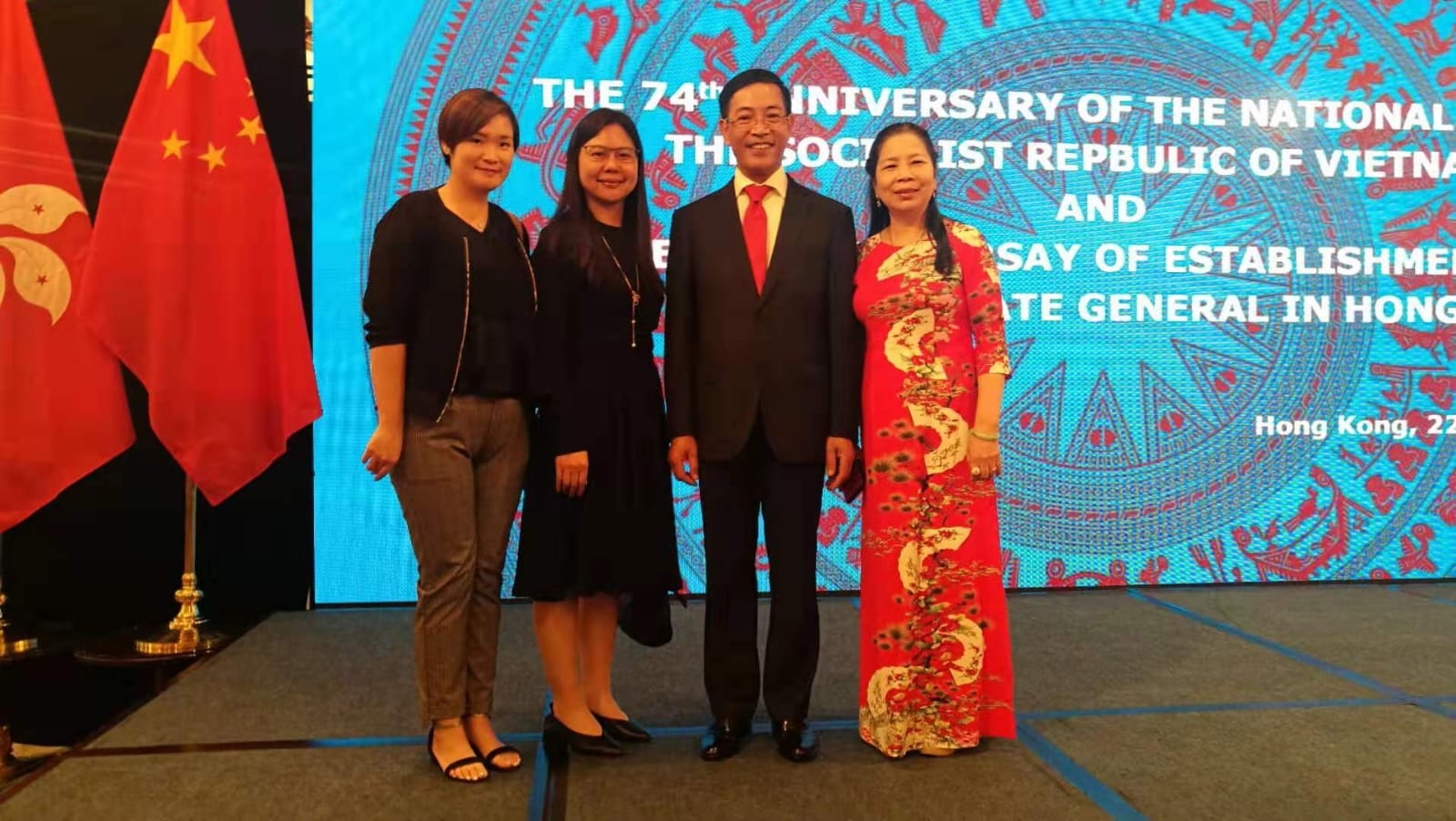
(Participate in the activities of the Vietnamese Association)
In addition Lam served as the Director of the Overseas Labour Service Programme. In one of her roles at Caritas Macau, she was responsible for providing life adjustment, emotional support, social resource connection and industrial relations coordination services for non-Chinese expatriates going to work in Australia.
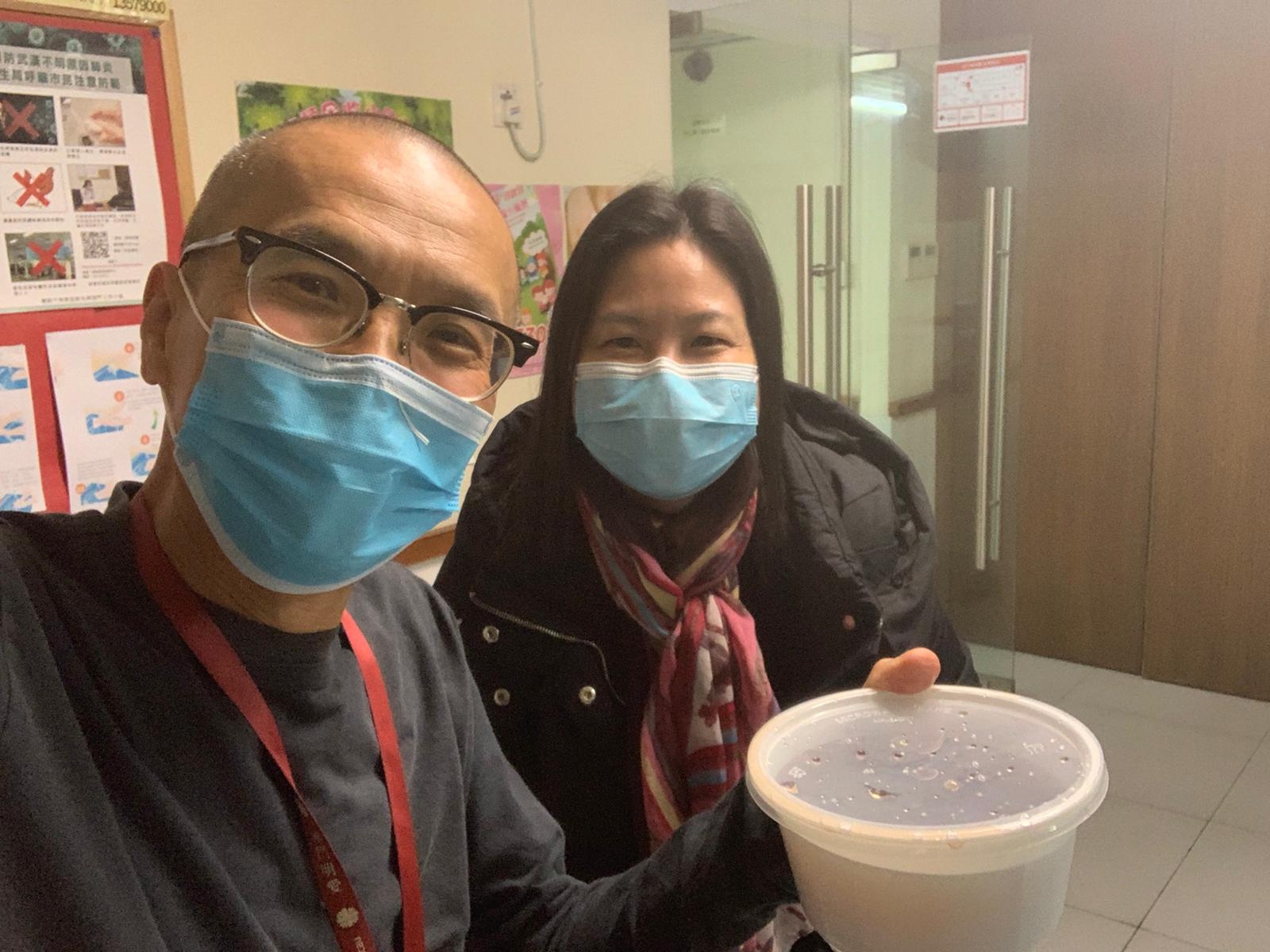
(During the COVID-19 pandemic, personally delivered soup to the 24-hour service facility to boost employees’ morale.)
Learn how to listen and feel because many people don’t know how to express themselves.
She mentioned that one aspect that particularly impressed him was the fear and pressure she experienced during the SARS outbreak in 2003. At that time, when limited knowledge existed about this infectious disease, various news media outlets were reporting on it. The general population was gripped with terror over this unfamiliar virus and concerned for their lives. She endured immense stress as she had to care for her family while also tending to over 60 severely disabled patients at the rehabilitation center who were unable to fend for themselves. The fear of contracting the virus herself, coupled with worries about her husband’s work in a hospital and ensuring proper care for her young son staying with her sister, added to her anxiety levels. While medical workers on the front line are often acknowledged during epidemic outbreaks, it is crucial to recognize the significant pressures faced by other team members as well. Drawing from lessons learned during SARS in 2003, she promptly reached out to her colleagues and stocked up on supplies at the early stages of COVID-19 outbreak in 2020.
Although initially receiving little attention, based on her experience it became evident that supplies play a critical role during a pandemic and provide front line staff with peace of mind necessary for carrying out their work effectively. Reassuring these staff members indeed becomes one of the most vital tasks during such anxious times. Furthermore, it was later mentioned in a headquarters meeting that lessons learned from SARS enabled them to respond promptly to COVID-19.
“These jobs affect my perception of people. I have to learn how to listen and feel because many people don’t know how to express themselves”, she states.
Lam also emphasized that doing social work requires love and treating everyone sincerely is the core of this job. She knows well the difficulties of social work, and despite limited capacity, the team is still trying to help more people. She believes that many problems stem from social prejudice and misunderstanding, and solving these problems requires the joint efforts and attention of the whole society. Therefore, filling the gaps in social work and improving related services are the direction of their continuous efforts.
Finally, Julie pulled out a notebook that she called “The Death Note” to prepare for her own departure. Over the years of her work, she had come to understand the uncertainty of life and wanted to be prepared for any emergency. This souvenir book was also a gift for her children. It contained her experiences, life lessons, and words of wisdom and even epitaphs for them. She hoped that when she passed away, her children would be able to draw on it and not be flustered in an emergency.




